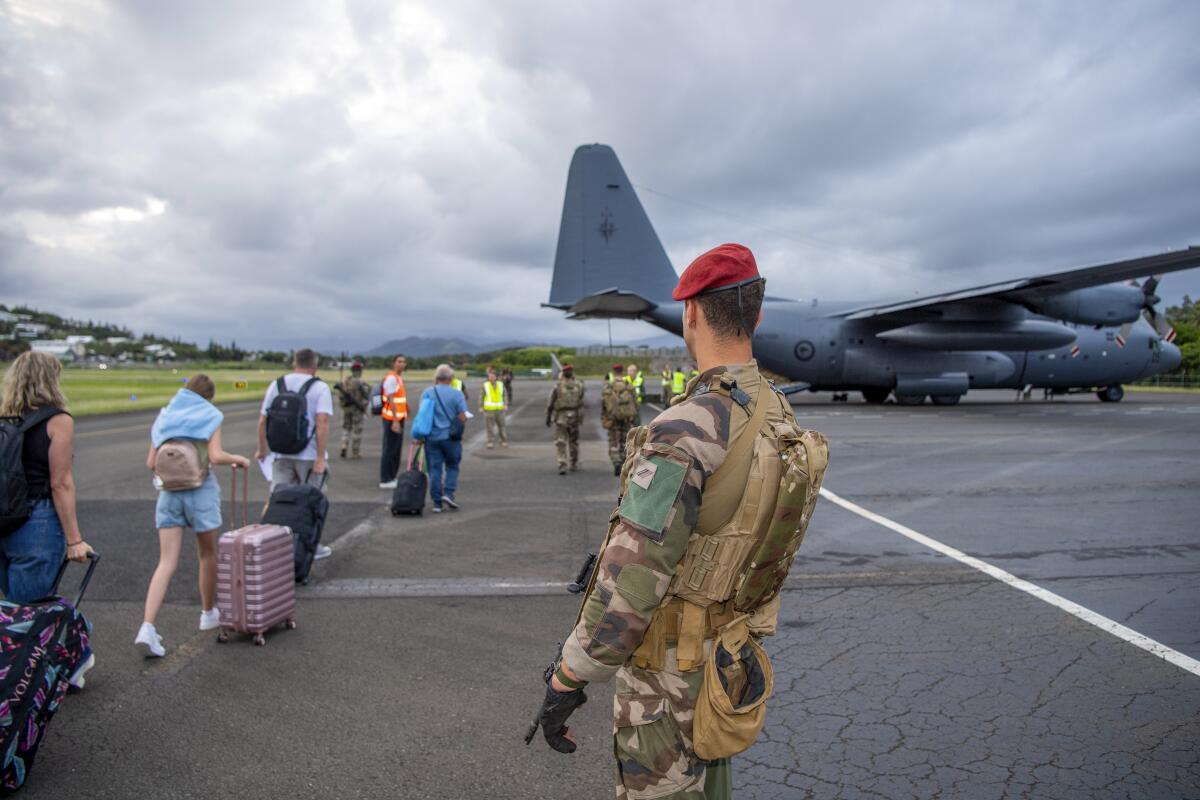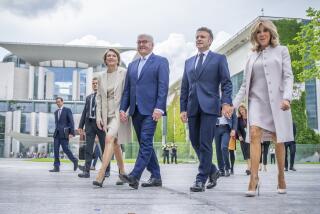Macron flies to New Caledonia amid ongoing unrest and Indigenous frustration with France

PARIS — French President Emmanuel Macron was on a flight to New Caledonia on Wednesday to seek a political solution to the deadly violence that has rocked the French archipelago in the Pacific where Indigenous Kanaks have long sought independence.
The rioting has raised new questions about Macron’s handling of France’s colonial legacy, including on the islands some 16,000 kilometers (10,000 miles) from metropolitan France. There have been decades of tensions between the Kanaks and descendants of colonists and others who settled in the territory of 270,000 people and want to remain part of France.
The violence erupted May 13 as the French legislature in Paris debated amending the French Constitution to make changes to New Caledonia voter lists. Opponents fear the measure will benefit pro-France politicians in New Caledonia and further marginalize the Kanaks, who once suffered from strict segregation policies and widespread discrimination.
French authorities in New Caledonia and the interior ministry in Paris said five people, including two police officers, were killed during the protests.
Macron left France on Tuesday evening and is expected to land Thursday morning in New Caledonia. The presidential Elysee Palace said he will focus on restoring order and facilitating dialogue among local leaders.
The president is going “to launch a discussion which should allow for a comprehensive political agreement to emerge,” Prime Minster Gabriel Attal told senators Wednesday without going into detail.
Six people have died in the violence, including four civilians and two gendarmes. The New Caledonia High Commission said more than 280 people have been arrested and 84 police officers and gendarmes have been injured. It said 1,050 reinforcements from the gendarmerie, police and civil security have been deployed.
Decades of tensions flare up in the Pacific archipelago, between Indigenous Kanaks seeking independence and colonizers’ descendants who want to remain part of France.
It was not clear how many civilians were injured.
Macron’s objectives also include expressing solidarity with the territory’s inhabitants, thanking security forces, and meeting with local leaders. He was also expected to discuss the significant reconstruction needed. The violence has caused damage estimated to be in the hundreds of millions of euros.
Macron, in the past, has facilitated dialogue in New Caledonia between pro-independence and pro-France factions. The efforts culminated in a 2018 referendum, the first of three, in which New Caledonians voted to remain part of France by a narrow margin.
Evacuation flights from New Caledonia to Australia continued.
Adamson writes for the Associated Press. AP writer Rod McGuirk in Melbourne, Australia, contributed to this report.
More to Read
Sign up for Essential California
The most important California stories and recommendations in your inbox every morning.
You may occasionally receive promotional content from the Los Angeles Times.











